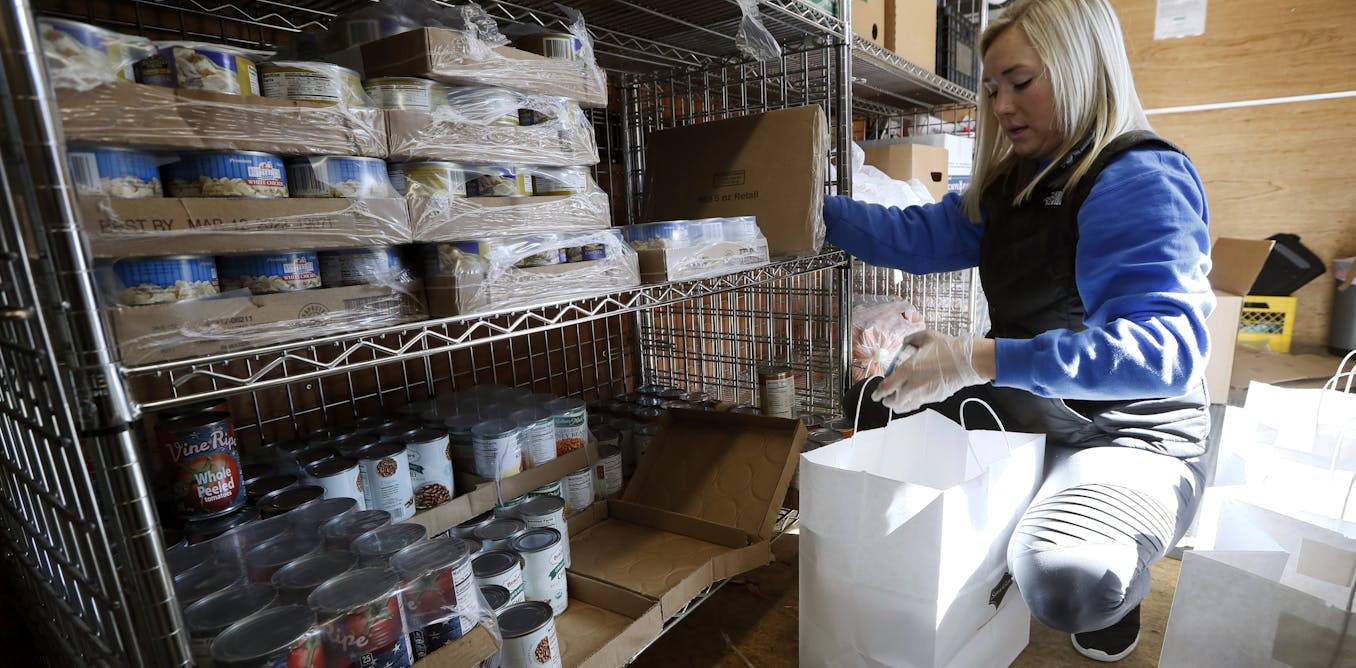Rising Demand: How Declining SNAP Enrollment Is Impacting Des Moines Food Pantries
Des Moines food pantries are facing a crisis as declining Supplemental Nutrition Assistance Program (SNAP) enrollment in Iowa drives a surge in demand for emergency food assistance. Over the past year, local nonprofits report a 30-40% increase in visitors, straining resources and raising concerns about food insecurity. Experts attribute the trend to stricter eligibility requirements, bureaucratic hurdles, and economic pressures, leaving vulnerable families with fewer safety nets.
The Perfect Storm: SNAP Cuts and Rising Food Insecurity
Iowa’s SNAP enrollment has dropped by nearly 15% since 2020, according to state data, while food pantry usage has skyrocketed. The Des Moines Area Religious Council (DMARC), which operates a network of 14 pantries, served 23,000 individuals in March 2024 alone—a record high. Meanwhile, federal SNAP benefits decreased nationwide after pandemic-era expansions expired.
- 42% of DMARC clients in 2024 reported being recently disenrolled from SNAP
- 68% of pantry visitors are employed but can’t cover basic needs
- 3-5 day waits now common at some Des Moines distribution sites
“We’re seeing working parents, seniors on fixed incomes, and even graduate students who previously qualified for assistance,” said Sarah Thompson, DMARC’s director. “When SNAP benefits disappear, we become their first stop—not their last resort.”
Bureaucratic Barriers Exacerbate the Crisis
Advocates point to Iowa’s 2023 administrative changes as a key factor. The state now requires:
- Quarterly (vs. annual) income verification
- Stricter asset limits that count family vehicles
- Online-only recertification processes
María González, a legal aid attorney with Iowa Justice For Our Neighbors, explains: “A single mom working two jobs might miss an email notification about recertification. Suddenly her family’s benefits stop, and she doesn’t have time to navigate the appeals process while keeping the lights on.”
State officials defend the changes. “Our priority is ensuring benefits go to those who truly qualify,” said Iowa Department of Human Services spokesperson Mark Reynolds. “Fraud prevention protects taxpayer dollars and preserves SNAP for the neediest Iowans.”
The Ripple Effects on Des Moines Communities
Food pantries are adapting—but at a cost. The Food Bank of Iowa now distributes 1.7 million meals monthly, up from 1.2 million in 2022. Smaller pantries report:
- Running out of staples like peanut butter and pasta by noon
- Cutting back from weekly to biweekly distributions
- Eliminating choice-based systems due to shortages
At the same time, donations haven’t kept pace with demand. “Our regulars notice when we can’t offer fresh produce or baby formula,” said volunteer coordinator James Wilson at St. Mary’s Community Kitchen. “You see the shame in people’s eyes when we hand them half-empty boxes.”
Experts Warn of Long-Term Consequences
Nutritionists highlight hidden impacts of the SNAP-to-pantry pipeline:
- Pantries rarely provide consistent dietary options for diabetics
- Children missing school when parents wait in long pantry lines
- Seniors choosing between food and medications
Dr. Emily Chen, a public health researcher at Drake University, warns: “Food insecurity creates chronic stress that worsens hypertension, depression, and childhood development. We’re essentially trading short-term budget savings for higher Medicaid costs down the road.”
Paths Forward: Policy Solutions and Community Action
Local organizations propose multi-pronged solutions:
- Policy reforms: Streamlining SNAP recertification, expanding outreach
- Public-private partnerships: Matching state funds for pantry donations
- Education: Helping eligible Iowans navigate application processes
As summer approaches—traditionally a high-need season when school meals disappear—nonprofits brace for worse. “This isn’t sustainable,” Thompson said. “Either we address the root causes, or we’ll see hunger reach levels unseen since the farm crisis of the 1980s.”
Community members can help by volunteering, advocating for policy changes, or donating to organizations like DMARC. As the gap between need and resources widens, Des Moines faces a critical test of its social safety net—and its collective conscience.
See more WebMD Network



